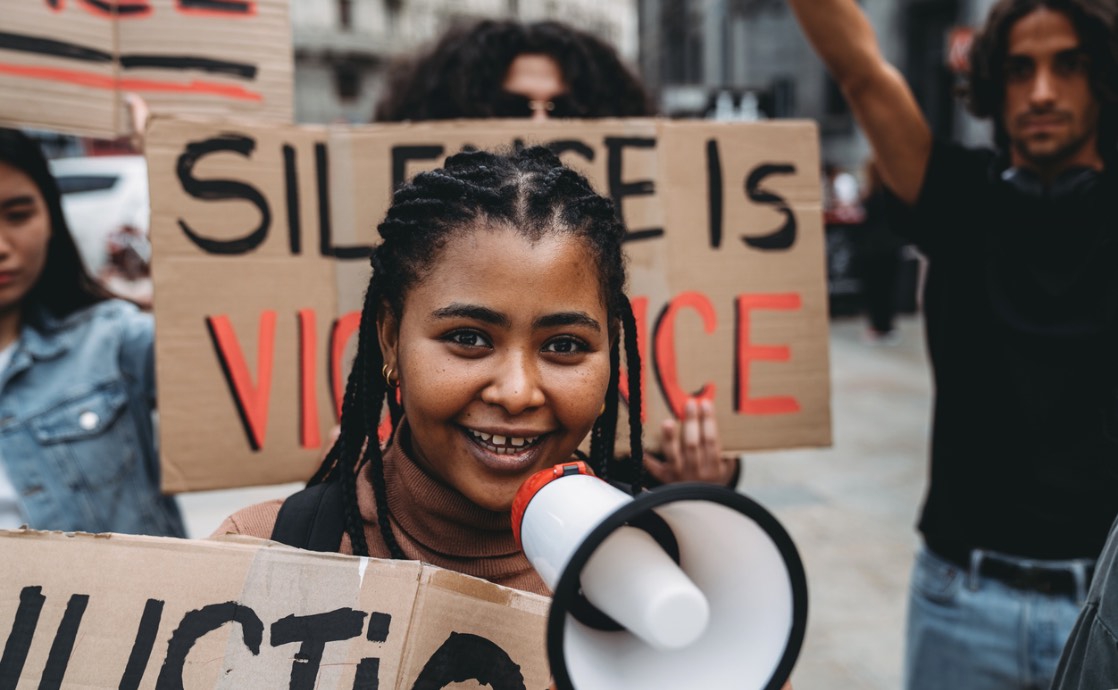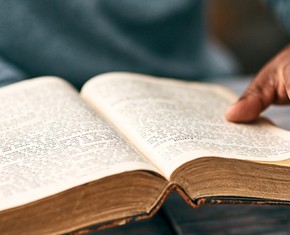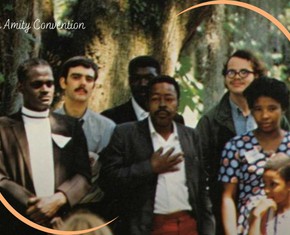The views expressed in our content reflect individual perspectives and do not represent the authoritative views of the Baha'i Faith.
Many psychologists believe humans are inherently hedonistic, meaning that approaching pleasure and avoiding pain are the main goals of our lives, with several theories expecting individuals to psychologically adjust to the conditions of their environment and the wider society for their happiness and well-being.
However, is it ever just or ethical to adjust to social injustice?
In a powerful keynote address delivered at the 1967 annual conference of the American Psychological Association, Dr. Martin Luther King Jr. called upon all people “of goodwill to be maladjusted to these things until the good society’s realized.”
He declared, “I must honestly say to you that I never intend to adjust myself to racial segregation and discrimination. I never intend to adjust myself to religious bigotry. I never intend to adjust myself to economic conditions that will take necessities from the many to give luxuries to the few [and] leave millions of God’s children smothering in an airtight cage of poverty in the midst of an affluent society.”
RELATED: What Is Power Without Love? Explore MLK and Baha’i Quotes
How People Adjust to Social Injustice
So, how do people adjust to societal injustice?
According to a journal article titled “The Psychology of Martin Luther King Jr.’s ‘Creative Maladjustment’ at Societal Injustice and Oppression,” published in The Journal of Social Issues, people “ignore, forget, accept, rationalize, legitimize,” and “minimize.” Let’s break these behaviors down.
1. They Ignore Injustice
To avoid feeling unhappy or uncomfortable, people ignore and avoid news that would educate them about global suffering. However, isn’t turning away from injustice akin to turning away from God? Baha’u’llah, the prophet and founder of the Baha’i Faith, revealed the following words:
The best beloved of all things in My sight is Justice; turn not away therefrom if thou desirest Me, and neglect it not that I may confide in thee. By its aid thou shalt see with thine own eyes and not through the eyes of others, and shalt know of thine own knowledge and not through the knowledge of thy neighbor. Ponder this in thy heart; how it behooveth thee to be. Verily justice is My gift to thee and the sign of My loving-kindness. Set it then before thine eyes.
2. They Forget Injustice
Some people try to forget our nation’s history of genocide and slavery by claiming it’s all in the past and that we should just move on and not think about those atrocities anymore.
However, they fail to understand how marginalized communities are still affected by this historical oppression through the systemic racism that persists in our structures and institutions.
3. They Accept Injustice
While some people may accept that injustice is a part of life and resign themselves to not doing anything about it, we can’t lose hope in our ability to make a difference in this world. Baha’u’llah stated:
It is through your deeds that ye can distinguish yourselves from others. Through them the brightness of your light can be shed upon the whole earth.
4. They Rationalize and Legitimize Injustice
People rationalize and legitimize injustice by seeking reasons or justifications for discriminatory practices and inhumane treatment. The Universal House of Justice, the global governing body of the Baha’i Faith, condemned this justification of abusive actions. They wrote:
There can be no justification for anyone compelling another, through the use of force or through the threat of violence, to do that to which the other person is not inclined.
5. They Minimize Injustice
People minimize injustice by downplaying or denying its severity, blaming its victims, and dismissing incidents as isolated cases.
They may compare current injustices to worse past conditions or appeal to progress by citing improvements over time. Some frame concerns as overreactions and emphasize that the harm a victim endures is their own responsibility while ignoring systemic barriers, allowing individuals and societies to evade accountability and delay meaningful change.
RELATED: Spiritual Clarity to Resist the Different Types of Gaslighting
The Meaning of MLK’s Call for Creative Maladjustment
So, it’s understandable why Dr. Martin Luther King Jr. called for “creative maladjustment,” urging people to refuse to normalize injustice and inequity while striving to work for the rights of our human family.
Dr. King’s call aligns with the spirit of what Baha’u’llah admonished around 133 years ago:
Be unjust to no man, and show all meekness to all men. Be as a lamp unto them that walk in darkness, a joy to the sorrowful, a sea for the thirsty, a haven for the distressed, an upholder and defender of the victim of oppression.
Let integrity and uprightness distinguish all thine acts. Be a home for the stranger, a balm to the suffering, a tower of strength for the fugitive. Be eyes to the blind, and a guiding light unto the feet of the erring.
Be an ornament to the countenance of truth, a crown to the brow of fidelity, a pillar of the temple of righteousness, a breath of life to the body of mankind, an ensign of the hosts of justice…
Dr. King continued, “And through such creative maladjustment, we may be able to emerge from the bleak and desolate midnight of man’s inhumanity to man, into the bright and glittering daybreak of freedom and justice.”
















Comments
Sign in or create an account
Continue with Googleor